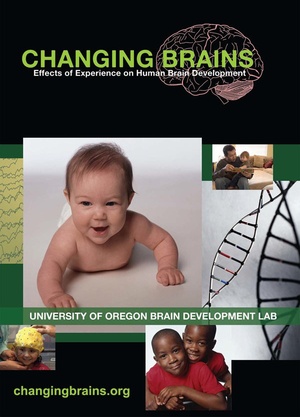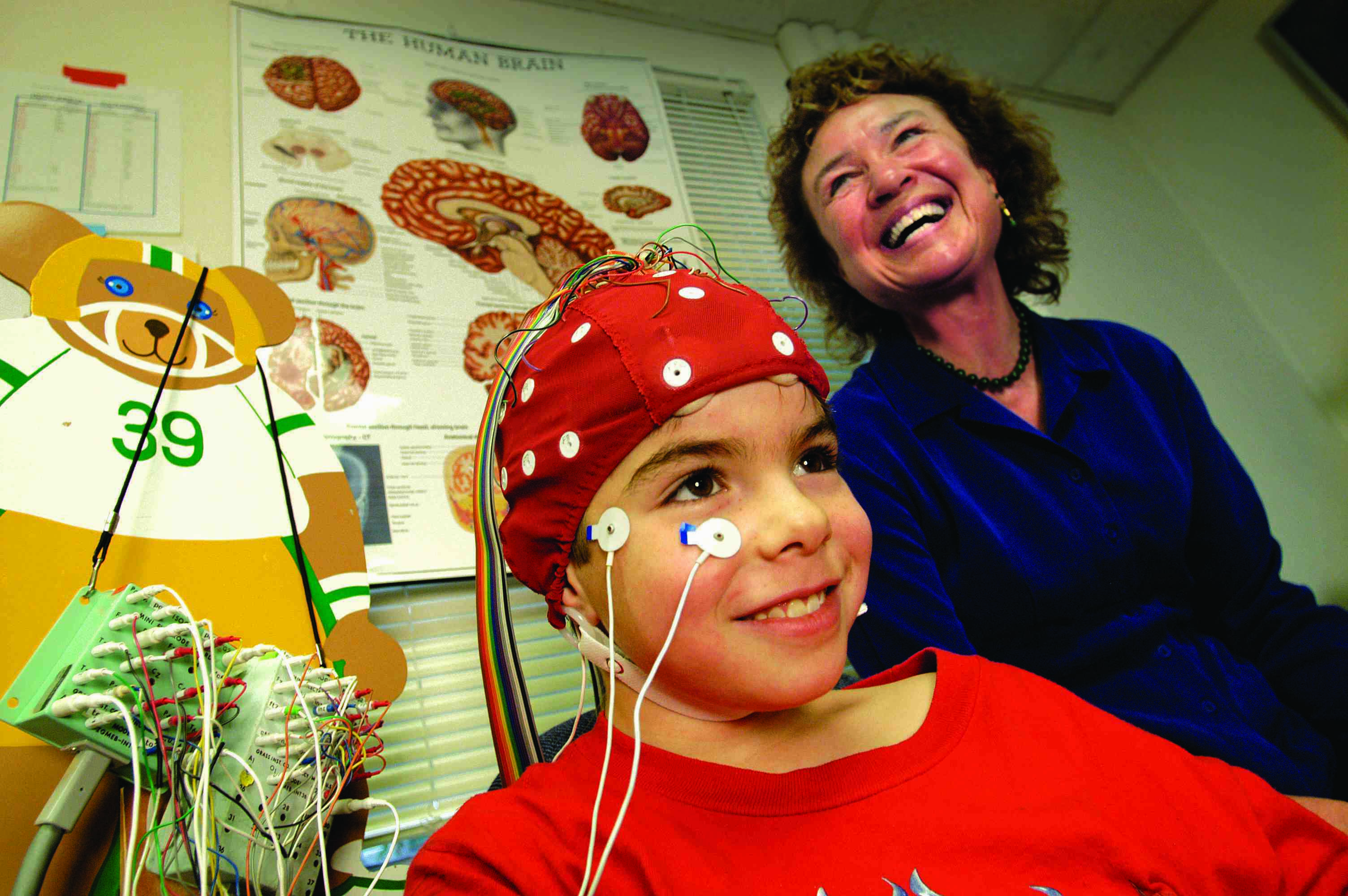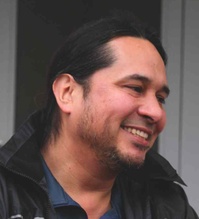 Early in the DVD, narrator and UO neuroscientist Helen Neville explains that the human brain has the consistency of room-temperature butter. Cut to an index finger nonchalantly pushing down on a moist bar of butter, and a salient and admittedly cringe-worthy point has been made.
Early in the DVD, narrator and UO neuroscientist Helen Neville explains that the human brain has the consistency of room-temperature butter. Cut to an index finger nonchalantly pushing down on a moist bar of butter, and a salient and admittedly cringe-worthy point has been made.
The brain is the most important thing in the universe, and people don't know it's exceedingly fragile," said Neville. "It's amazing what people don't know about the brain."
Many probably don't know that the brain is constantly evolving, forming new connections and adapting to input from our experiences until we reach the age of 25. Probing the mysteries of just how this happens is a prime directive for Neville and colleagues like psychologist Phil Fisher, both of whom are affiliated with the UO's new Center for Healthy Brain Development.
There's this prevailing myth that the brain is genetically determined, like the liver or something," Neville said. "But just about every aspect of brain function is shaped by and depends on experience."
 Neville with a young subject from her brain research lab. Photo: Michael McDermott
Neville with a young subject from her brain research lab. Photo: Michael McDermott
Neville and Fisher are determined to dispel some of these myths and help the general public become better informed about their brains. Toward this end, Neville led the production of Changing Brains: Effects of Experience on Human Development, a 75-minute film that explains the interaction of our brains and experience, all in a digestible language for non-scientists. It can be viewed online at changingbrains.org where it can also be purchased on a sliding scale, an effort to make it accessible to low-income parents to better help them get their kids ready for school.
One section of the DVD focuses on how kids develop the ability to pay attention, something that sheds light on some misconceptions about attention deficit hyperactivity disorder (ADHD).
This is a topic of special interest to Fisher, who is particularly intrigued by external stressors. He believes that the foster children he studies might sometimes be inaccurately diagnosed with ADHD and other disorders or unfairly labeled as problem kids because of how their brains have adapted to their troubled lives.
"If the student is in a class, and he's not paying attention to the teacher, the teacher will assume he doesn't care or he's a bad kid," said Fisher. "But the truth is that their brain hasn't developed to absorb this feedback."
That's because, when exposed to constant "toxic stress," children's brains evolve differently to help them cope. Their brains can develop to dull their ability to sense what's going around them, particularly when there are traumatic events. Fisher has also discovered that these children have low levels of the hormone that manages stress levels, another coping mechanism. If they're immersed in a world of stress, it would be too draining to be constantly on guard; it's more efficient to be inured to the stress.
Yet this makes it difficult for foster children and other kids from turbulent backgrounds to properly acclimate when they do land in a positive, stable environment. The low levels of stress hormones, for instance, lead to high rates of impulsivity.
"These kids still tend to act like they're not okay, even when their circumstances improved," he said. "But we've found that with the right kind of consistent treatment and proper stability, they can start plugging back into the world again."
He and other neuroscientists refer to this ability of the brain to adapt and re-adapt -- in the same way stroke victims can learn to talk again -- as plasticity.
The brain, as fragile as it is, is far more resilient and adaptable than many have imagined. All the more reason more education is needed.
There's a huge missing link between teachers and parents who are hungry for this information and the researchers who have it," Fisher said. "It's important that we reach people."
- Mark Dadigan
Learn about the episode of the PBS series The Human Spark, which took viewers inside Helen Neville's lab and actor Alan Alda's brain.


 When the volcano erupted, a UO professor discovered that local residents consoled themselves through song.
When the volcano erupted, a UO professor discovered that local residents consoled themselves through song.
 Join UO neuroscientists as they bring the host of the PBS series, The Human Spark into their brain research lab.
Join UO neuroscientists as they bring the host of the PBS series, The Human Spark into their brain research lab.  Temple Grandin, perhaps the world's best known person with autism, drew an overflow crowd to her UO talk.
Temple Grandin, perhaps the world's best known person with autism, drew an overflow crowd to her UO talk.

 Watch a slideshow about Elena Rodina's journalistic globetrotting, from the Arctic Circle to Cuba.
Watch a slideshow about Elena Rodina's journalistic globetrotting, from the Arctic Circle to Cuba.